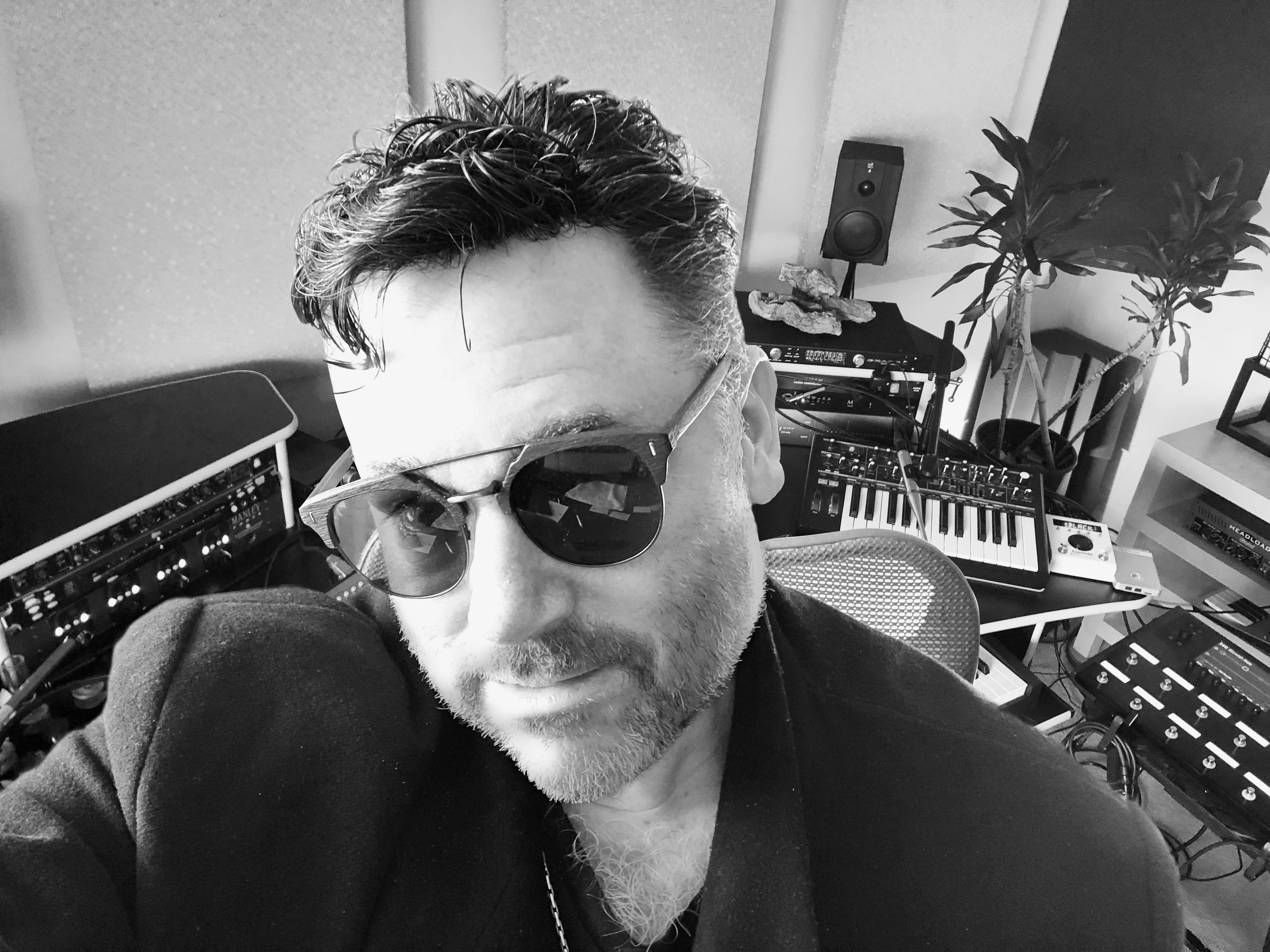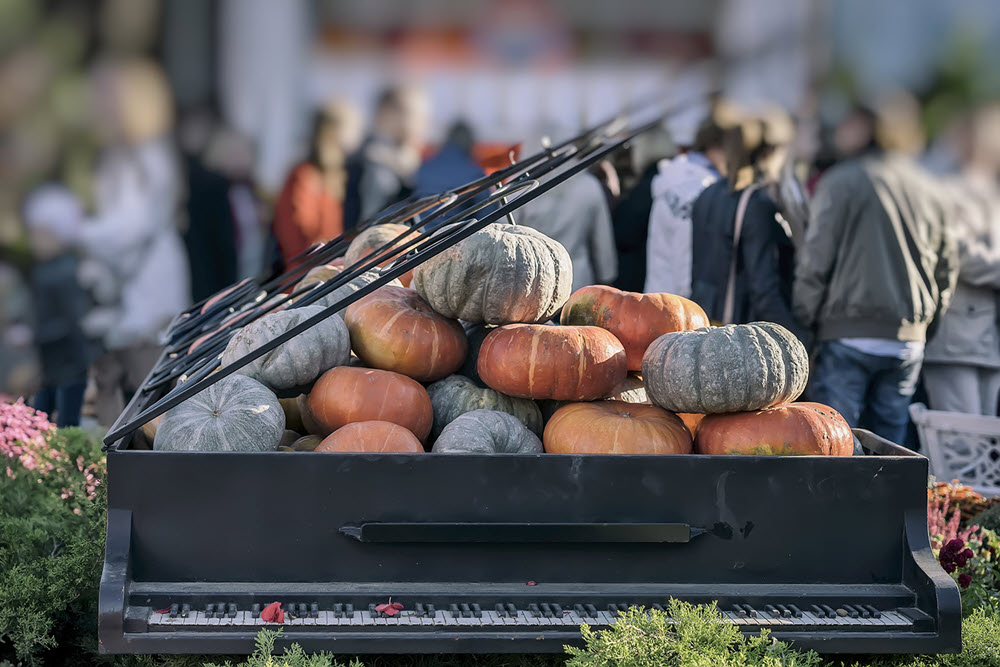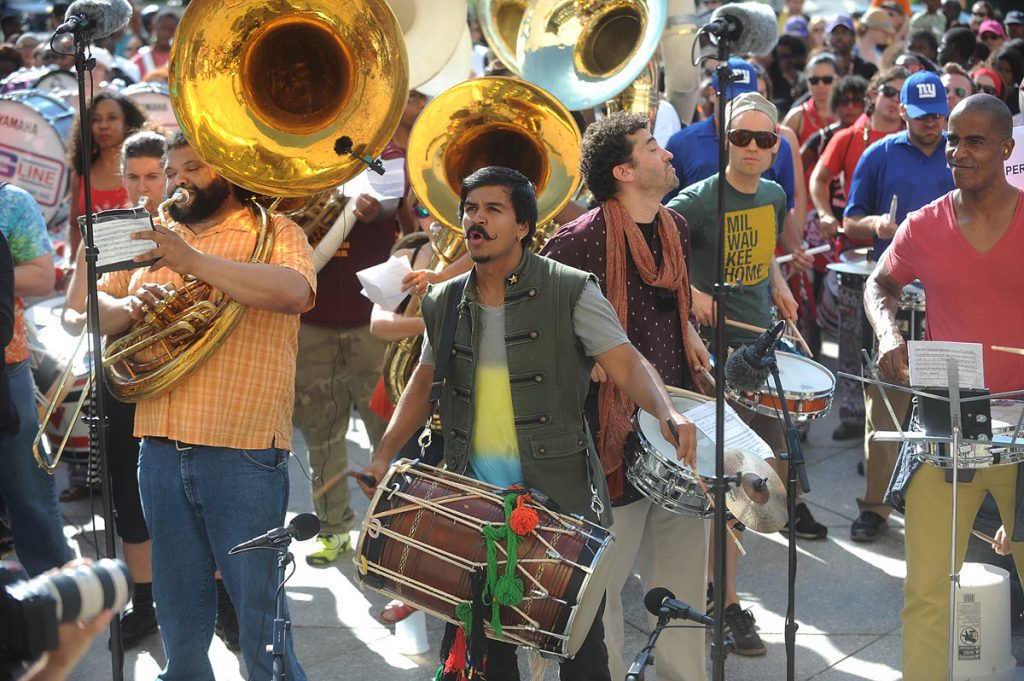Turning a Gift Into a Career
Luck always seems to occur when preparation meets opportunity.
I consider myself blessed to have turned music into a career.
Like most grade school kids, I started out playing band instruments before transitioning to guitar in my early teens. But I never studied music in college, and after graduating with a Marketing/Management degree, I worked in commercial lending at a bank for a few years. Making a life with music seemed like something others did. So how in the world did I end up not only doing just that, but working with some of the very same artists I grew up listening to?
The only answer I have is that being able to create music is a gift I was given; in fact, I believe it’s one of the reasons I was put on the planet. While that may sound overly deep, it’s how I truly feel. Music brings me a sense of deep satisfaction that my previous life in banking did not.
This journey did not happen overnight. There is a sense of right time, right place and the ever elusive thing called luck, which always seems to occur when preparation meets opportunity. After making the decision to leave banking, I found myself drawn to recording, mixing and production, and fortune shone upon me when I crossed paths with the great jazz fusion guitarist Al Di Meola, who gave me my first job in music — at first assisting on just about anything that needed to get done on the road and in the studio, and later traveling to many parts of the world and making records with him. This gave me the opportunity to observe artists like Al and others at the top of their craft do what they do, and the observing, learning and applying of those skills still pushes me to work hard every day.
All the while, I honed my own musical abilities until I eventually received an assignment from the Nickelodeon TV network to compose some tracks for their international library. That led to other opportunities to get my work on television. One show led to another, and then another. Over the years I’ve composed rock, metal, funk, acoustic country, and just about every other genre there is, conjuring up every kind of emotion you can name. Sometimes I have to write a variety of sounds and styles in the same day, literally minutes after each other.
The fun part of creating music for television is the challenge to get the tracks to fit the emotions and pace of the show. Slow, bluesy acoustic tracks might not work for a fast-moving crime scene, but if the camera is focused on someone sitting on a country porch pondering whodunit, it might be just right. Hard rock might not be a good fit for a documentary about Alaskan ice floes but will work perfectly for one about race cars. Next time you’re watching a show, focus on how the music helps the flow, pace and energy of each scene. Then try to imagine the same show with no music, period. It might not work at all. That’s just one example of the power of music.
If you’re planning a career in music, I cannot understate how important it is to know your gear. Because of all the time and effort I’ve put into learning the ins and outs of my DAW and all the plugins and instruments I use, my brain doesn’t even have to think when I’m creating music. It just does.
I also make a point of learning something new just about every day. That can mean almost anything. For example, I might take the time to create a new Line 6 Helix® patch for guitar or study some new tunings. I might test out some drum loops I’ve never explored or learn some keyboard chords I’ve never used before. And I’m always experimenting with new mics, preamps and ways to record everything from a full drum kit to a simple shaker. The more you know, the better prepared you’ll be when your brain calls upon you to get the part done. Again, I don’t have to think about it. I’ve already done it, learned it and stored it away for quick recall.
I’ve always believed that creating music is what I call “life deep.” That means that the G chord I learned when I was 14 still applies today, many years later. And building upon that by learning, say, a whole variety of G chords (Gsus, Gm7, G6, for example), you create a palette of knowledge that keeps expanding your skills. Getting better at your craft is a lifelong pursuit, whether it’s what you do for a living or what you do for fun.















